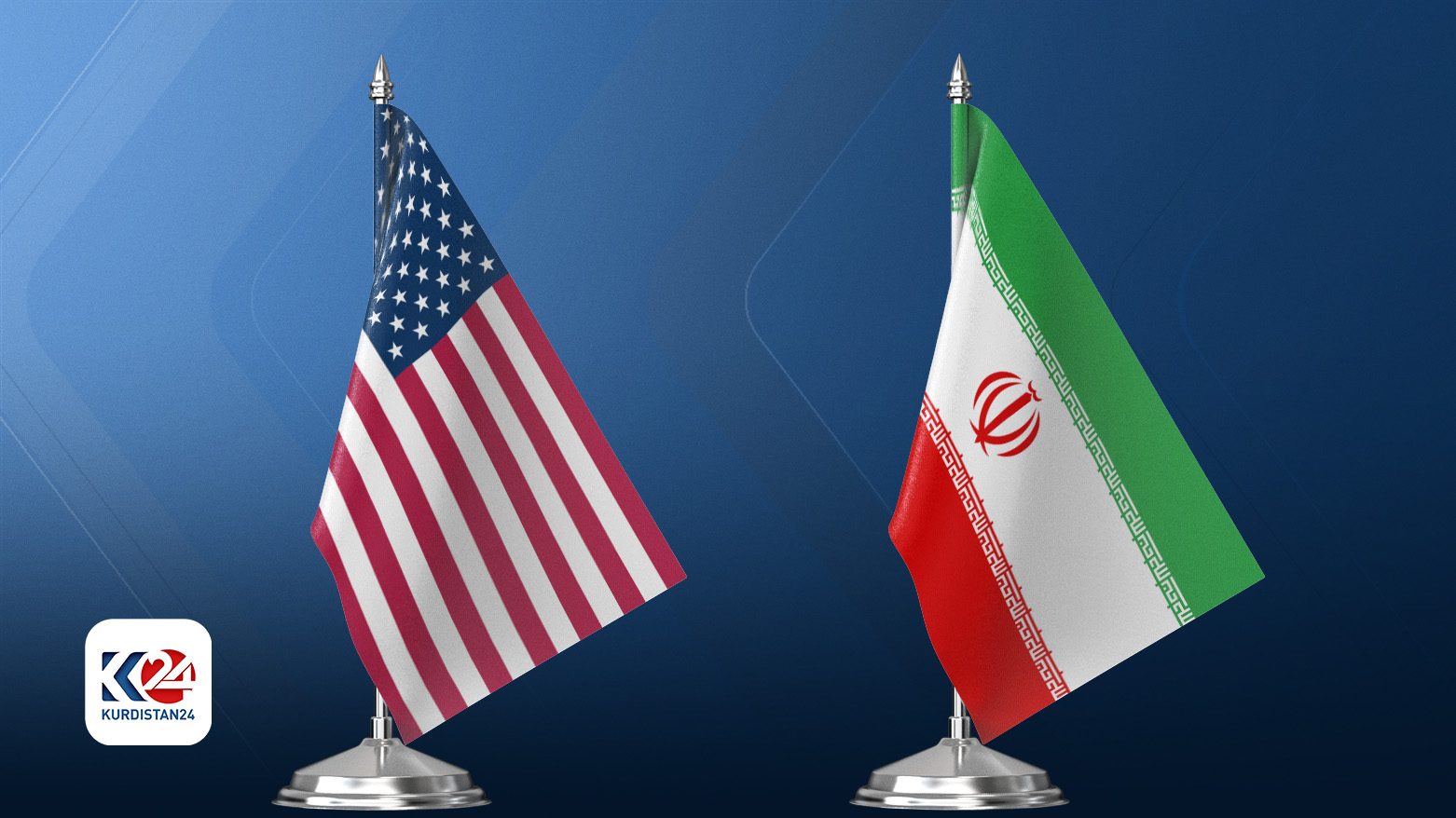U.S. Lays Out Conditions for Improving Ties with Iran
As Miller was asked to respond to Pezeshkian’s overtures, he affirmed America’s “great fondness for the Iranian people,” before listing five issues that need to be addressed.

WASHINGTON DC, United States (Kurdistan 24) – State Department Spokesperson Matthew Miller expressed the Biden administration’s conditions for better U.S. relations with Tehran.
Miller spoke at a press briefing on Wednesday in response to questions, prompted by overtures to the U.S. from Iran’s newly-elected president, Masoud Pezeshkian.
On Monday, Pezeshkian held his first news conference as Iranian president. Referring to the U,S., he said, “We are brothers with them,” as he called on Washington to return to the 2015 nuclear deal, which was concluded during the Obama administration and which Donald Trump left in 2018 (formally, it is known as the Joint Comprehensive Plan of Action, or JCPOA.)
Pezeshkian’s Foreign Minister, Abbas Araghchi, was closely involved in those talks. He was also the lead negotiator, as the Biden administration, in its initial policy toward Iran, sought to revive the JCPOA. However, that effort was abandoned in the fall of 2022, as it appeared that Tehran was not really interested in renewing the accord.
Read More: US affirms ‘gaps remain’ for reviving Iran nuclear accord
Events since have further soured the U.S. attitude, as well as that of the European Union (EU), toward Tehran.
Pezeshkian ran as a moderate in the elections in July that followed the accidental death of Iranian President Ebrahim Raisi in a helicopter crash. Pezeshkian’s intentions are not generally doubted, but there are serious questions as to how much authority he has to change Iranian policy, and that is what Miller took on.
U.S. Conditions for Renewing Talks with Iran
As journalists asked Miller for his response to Pezeshkian’s overtures, he affirmed America’s “great fondness for the Iranian people,” before listing the matters that need to be addressed.
Miller cited five issues. “The way to show brotherhood,” he began, would be “to stop arming and encouraging terrorist groups.”
Indeed, earlier this week, The New York Times reported that Hamas and the Houthis, two groups backed by Iran and which the U.S. and EU have designated as terrorist organizations, have recently opened offices in Baghdad.
Speaking on Monday, Miller denounced that development as threatening Iraq’s “stability, sovereignty, and economic growth.”
Read More: U.S. Denounces New Offices of Hamas, Houthis in Baghdad
The second issue that Miller raised was Iran’s nuclear program: “stop nuclear escalations and blocking the work of the International Atomic Energy Agency [IAEA],” he said.
Possibly, positive developments may emerge in that regard. On Monday, Rafael Grossi, the IAEA’s Director General, briefed the organization. Regarding Iran, he warned, “It is a matter of concern that significant safeguards issues remain outstanding.”
“Iran’s implementation of the activities set out in the Joint Statement between myself and Iran in March last year has stopped,” Grossi continued. “However, my correspondence so far with the new government has been constructive and open and I hope to visit the country in the not-too-distant future.”
It would be a major development, if Pezeshkian’s government and the IAEA could reach agreement on monitoring Iran’s nuclear activities and preventing Iran from acquiring a nuclear weapon.
The third issue cited by Miller: “stop plotting to kill political opponents.” That includes political opponents in the U.S.
Last year, the Justice Department charged three Azeri men with plotting, at the direction of Tehran, the assassination of an Iranian dissident based in New York.
Read More: US: Iran behind Azeri criminal gang that plotted assassination of dissident in New York
Miller’s fourth issue was Iran’s support for Russia in its war of aggression against Ukraine. “Stop transferring missiles and drones to Russia,” he said.
Read More: U.S Criticizes ‘Burgeoning Security Partnership Between Iran and Russia’
And the fifth issue was human rights broadly. Iran should “stop cracking down on the human rights of its own people,” Miller said.
The Biden administration has only four months left in office, and it would seem quite unlikely that even with the best of intentions, these issues could be resolved in that time.
But, perhaps, if Kamala Harris wins the presidential elections, they could serve as a roadmap for improving ties.
In the meanwhile, they underscore the radical change in the Biden administration’s view of Iran from when it first assumed office some three years ago, keen to restore the JCPOA and establish better relations with Iran, to what it is today.